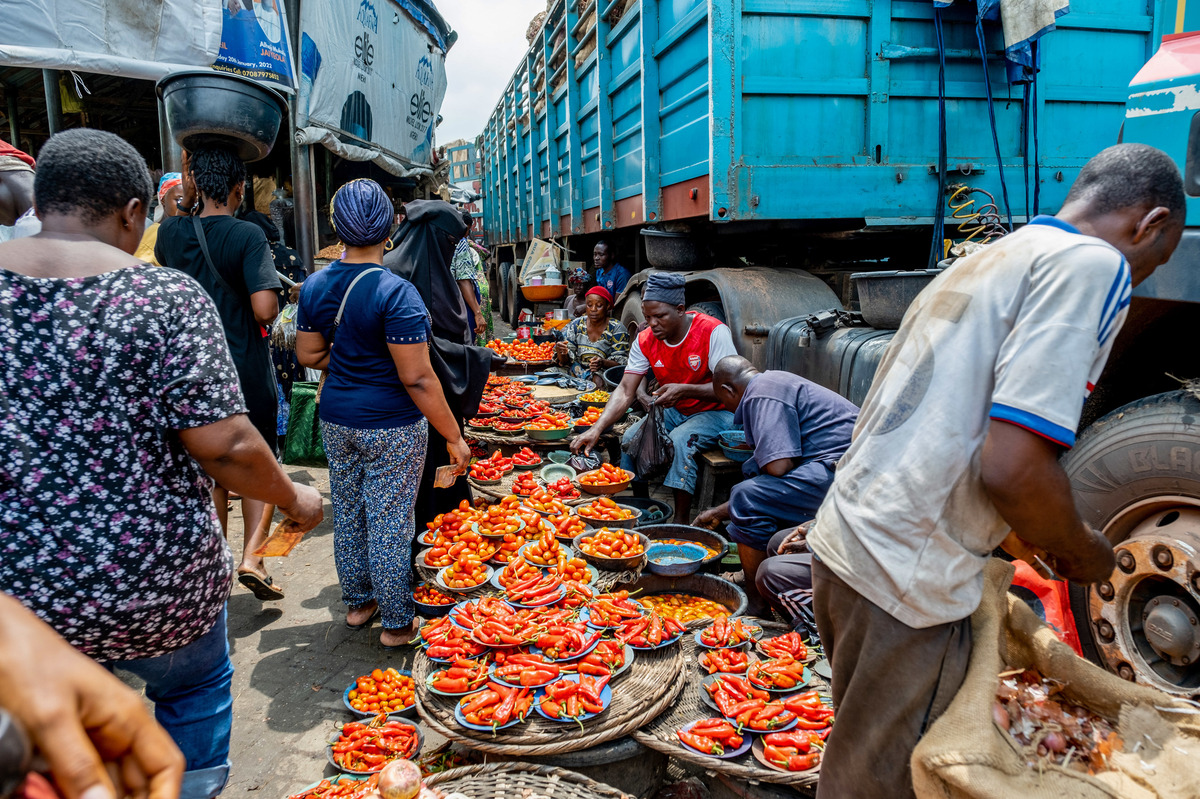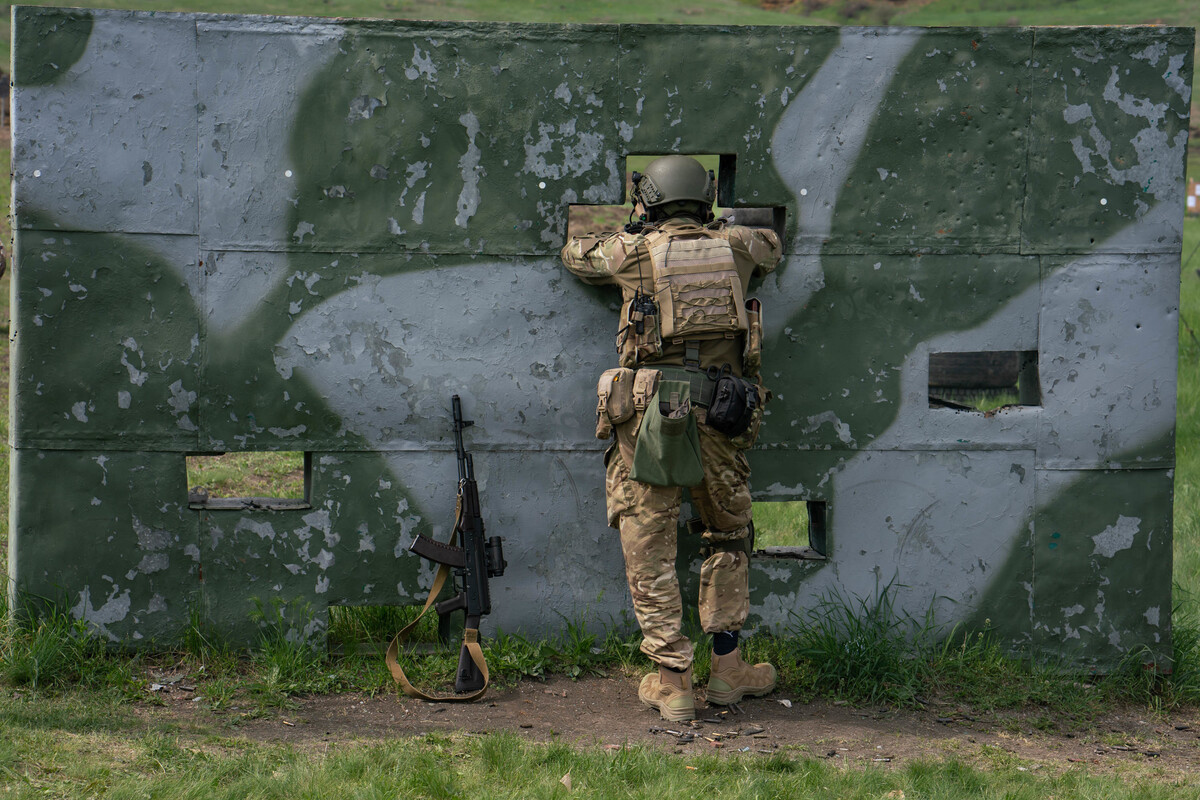A large number of workers from different sectors protest against inflation and in favor of higher wages in Buenos Aires, Argentina on August 17, where inflation has soared.
Pablo Barrera/Anadolu Agency via Getty Images
hide caption
toggle caption
Pablo Barrera/Anadolu Agency via Getty Images

A large number of workers from different sectors protest against inflation and in favor of higher wages in Buenos Aires, Argentina on August 17, where inflation has soared.
Pablo Barrera/Anadolu Agency via Getty Images
The US dollar strengthened this week to its highest level in 20 years against a collection of foreign currencies, causing more problems for small, heavily indebted nations around the world. The stronger dollar makes payments on loans owed in US currency more expensive. It comes as some low-income countries face growing economic problems and others – including Sri Lanka, Lebanon and Zambia – have already defaulted on their international debts.
Argentina last week imposed sweeping new restrictions on imports of everything from whiskey to software to consulting services in an attempt to contain inflation that is over 70%. The South American nation has suffered a hemorrhage of foreign currency and the strengthening US dollar threatens to worsen the situation. In July, the value of the Argentine peso fell to a record low against the dollar on the black market.
Francesc Balcells, who manages emerging market debt at Dubai-based Frontier Investment Management Partners, says US interest rate hikes like the ones we’re seeing often spell disaster for low-income countries.
“If you look at the history of emerging markets from the Latin American debt crisis in the 1980s, the Mexican peso crisis in 1994, to the various defaults in Argentina, to the Brazilian crisis in the early 2000s,” Balcells runs through a list of the most recent emerging market meltdowns, including the Asian financial crisis in the late 1990s. “All of these periods always coincide with periods of rising interest rates in United States”
Not only do poorer countries have larger debts in US dollars, but they now have to pay even more for imports bought in dollars as the currency strengthens. And this time around, global fuel and food prices were already skyrocketing, due to currency fluctuations and severe supply shortages caused by the Russian invasion of Ukraine.

One of three ports on the Danube on the Ukraine-Romania border in May. These three ports are the only ports managed by Ukraine still in operation in the country. The Russian invasion has mostly halted exports from Ukraine, until a UN-brokered deal to ship grain and other foodstuffs this summer.
Claire Harbage/NPR
hide caption
toggle caption
Claire Harbage/NPR

One of three ports on the Danube on the Ukraine-Romania border in May. These three ports are the only ports managed by Ukraine still in operation in the country. The Russian invasion has mostly halted exports from Ukraine, until a UN-brokered deal to ship grain and other foodstuffs this summer.
Claire Harbage/NPR
“Don’t overuse the term, but it’s been pretty much a perfect storm for emerging markets,” Balcells says of the current situation.
According to the Bloomberg economic news service, the number of emerging market borrowers with distressed debt has doubled in the past six months. The pandemic has played a role in this, as many governments have taken on additional debt to subsidize idle workers and keep social services running.
An investment analysis from Barclays Corporate and Investment Bank called the second quarter of 2022 an “absolute disaster” for the global economy and warned that the third quarter “is shaping up to be the summer of discontent”.
Balcells says many of the larger middle-income countries can weather this storm. But others are beaten. For example, in May Sri Lanka suffered a political and economic collapse and was unable to pay its external debts. The default makes it nearly impossible for Sri Lanka to purchase food and fuel from international markets.
Other nations facing financial difficulties are spread around the world, including El Salvador, Pakistan and Ghana. In Nigeria, Africa’s largest economy, inflation has risen to its highest level in 20 years, fueled almost entirely by soaring food prices.
“Right now the world is experiencing the worst food security crisis we have ever seen,” said US Ambassador to the United Nations Linda Thomas-Greenfield. Speaking at the Chicago Council on Global Affairs in late August, Thomas-Greenfield said much of the current global food crisis was due to Russia’s invasion of Ukraine.
She notes that before the war, Russia and Ukraine accounted for almost a quarter of world grain exports. Disrupting these grain supplies, she says, does more than just leave people hungry.

A Ukrainian resident of Moschun walks through the remains of his home in Moschun, a Kyiv suburb, in April.
Claire Harbage/NPR
hide caption
toggle caption
Claire Harbage/NPR

A Ukrainian resident of Moschun walks through the remains of his home in Moschun, a Kyiv suburb, in April.
Claire Harbage/NPR
“Food security is directly linked to economic growth,” she said. “And that’s important because food insecurity leads us to political and social instability. And that puts us all at risk.”
The big question is how much instability the current global economic downturn will produce.
Food price increases hit poorer nations and households harder than wealthier ones, as spending on food eats up a larger portion of their budget. For example, the International Monetary Fund estimates that food represents 40% of the consumer price index in sub-Saharan Africa, while it represents less than 20% of the index in advanced economies.

Customers line up to buy fresh peppers at the Mile 12 food market in Lagos, Nigeria on July 7. Soaring inflation could push another 15 million Nigerians into extreme poverty by the end of this year, according to the World Bank.
Damilola Onafuwa/Bloomberg via Getty Images
hide caption
toggle caption
Damilola Onafuwa/Bloomberg via Getty Images

Customers line up to buy fresh peppers at the Mile 12 food market in Lagos, Nigeria on July 7. Soaring inflation could push another 15 million Nigerians into extreme poverty by the end of this year, according to the World Bank.
Damilola Onafuwa/Bloomberg via Getty Images
Balcells, along with Frontier Investment Management Partners, believes that the worst economic difficulties of the current economic downturn will be in smaller, highly indebted emerging economies. It includes Ecuador, Ghana, Zambia and El Salvador on this list. Two major nations – Pakistan and Turkey – are also at risk, he says. The IMF this week approved a billion-dollar rescue package to support Pakistan’s struggling economy.
Another thing that differentiates 2022 from the global economic crises of the past is China’s role as a major lender. A significant portion of the debt currently owed by low- and middle-income countries is owed to Beijing.
“In terms of external debt, China is the elephant in the room,” says Vasuki Shastry, associate fellow at global think tank Chatham House.
Unlike the global debt crises of the 1980s, the lending side of the equation is now significantly different. There are now billions of dollars owed to China. Much of this debt came as part of China’s ambitious Belt and Road infrastructure program. The problem, Shastry says, is a lack of transparency around much of China’s lending. Some of it qualifies as commercial debt rather than sovereign debt, even though it is owed to Chinese state-owned enterprises.
And negotiating debt relief with Beijing is new ground not just for individual countries, but for the wider international community. Traditionally, the IMF and the so-called Paris Club of wealthy nations play an important role in restructuring troubled debt. But so far, Beijing has preferred to deal with its borrowers alone.
“China is essentially signaling that there are two tracks in terms of global debt negotiations,” Shastry said. “A track is led by the OECD [the Organization for Economic Cooperation and Development], which includes the United States and Europe, the traditional Paris Club. And China wants to be part of a separate path, where it alone wants to determine how it wants to deal with countries facing over-indebtedness.”
The Group of 20 is another forum for emerging markets to negotiate debt relief. But given that Russia is a member of the G-20, it has been nearly impossible since the invasion of Ukraine in February to get the group’s finance ministers to agree on a unified response to the growing global economic turmoil. .

A Ukrainian reconnaissance team trains near Mykolaiv in May.
Claire Harbage/NPR
hide caption
toggle caption
Claire Harbage/NPR

A Ukrainian reconnaissance team trains near Mykolaiv in May.
Claire Harbage/NPR
Particularly if the war in Ukraine drags on, Shastry says current global economic conditions will cause “a lot of pain” in low- and middle-income countries. He predicts that this pain is going to be even worse and could last even longer this time due to a lack of global cooperation to deal with it.





